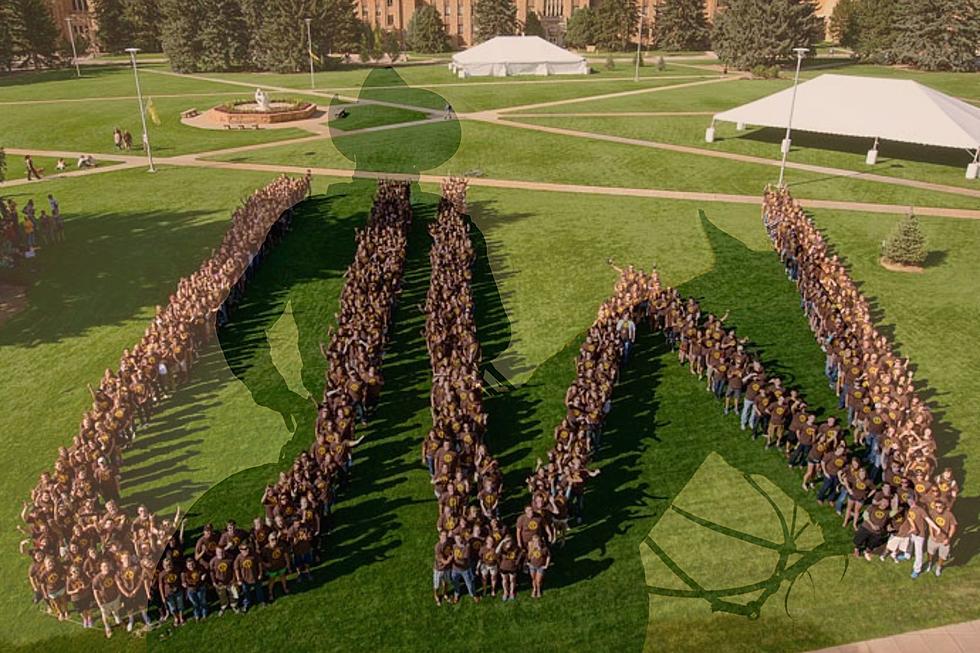
UW’s CEDAR Brings Cybersecurity Education to University, State
In the nine months or so that the University of Wyoming’s Cybersecurity Education and Research center has been operating out of the College of Engineering and Applied Science at the University of Wyoming, the center has pushed UW computer science students as well as the broader Wyoming community to rethink the possibilities surrounding cybersecurity in the Cowboy state.
Mike Borowczak was hired on in January as the director of CEDAR, as well as a professor in computer science. He took the mission of CEDAR to heart and has pushed to develop and support cybersecurity education, research and outreach at UW.
While CEDAR is based on the UW campus, Borowczak has started multiple initiatives to bring cybersecurity to the public, one of them being “Lunch and Learn,” an educational series with presentations from professionals.
“I will say that our primary focus is on the educational domain, but we are trying to expand that. Our efforts to expand our reach include our ‘Lunch and Learn’ series that we open to the public, our partnerships with other entities like ‘Made Safe in Wyoming’, being part of the Wyoming Block Chain coalition,” Borowczak said. “While we are housed in the university and our primary focus is education at the university level, we really are trying to make this a community effort.”
Borowczak said he has also applied for grants that would help CEDAR support the creation of free summer camps for students in Laramie and Casper for students and for educators.
CEDAR’s main goal is cybersecurity education – and UW students are jumping right in to the issues surrounding cybersecurity.
UW computer science students are getting to look at real-life problems and current trends in cybersecurity and computer domain. Students will soon be able to enroll in “Rock the Blockchain Vote,” course. The course, which Borowczak said was developed after Gov. Matt Mead asked the Dean of the College of Engineering, Dr. Michael Pishko, if the university was doing anything involving blockchain. Blockchain, Borowczak said, is of keen interest to many because of its association with Bitcoin, a cryptocurrency and worldwide payment system.
“Blockchain is the fundemantal technology behind the scenes that allows bitcoin to work, really, all blockchain is, under the hood, is a way for many different parties, machines or people, but machines in this case, to all communicate and form consensus,” Borowczak said. “Meaning, there is no one single point of truth, the truth is built into everyone in the system saying they agree to something.”
Borowczak said some applications of blockchain could identifying whether or not there was voter fraud in an election. In the blockchain course, students will develop a voting mechanism using blockchain.
“The idea here with this class that we’ve created is, essentially, can our students, in one semester, come up with a proof of concept where they use blockchain to implement a voting mechanism,” Borowczak said. “So, you know, perhaps down the road Wyoming could be one of the first states to use blockchain to guarantee that everyone in the state has voted once and only once and the vote is secure.”
Borowczak said CEDAR is also sending 18 students from the course to San Francisco to participate in the annual Developer Week Conference in February 2018.
Getting on board with cybersecurity is not just important for students’ edification, but will impact the future of the state as well.
“More integrated approaches to science in general – so that basically means integrating into existing STEM, integrating computing into existing manufacturing, all of those things enable us to diversify our revenue as a state,” Borowczak said.
Borowczak said in computer science, the only resource needed is a mind and a computer and computer science graduates can work from anywhere - especially in Wyoming, which Boroczak said has the infrastructure and the connectivity to really make computing-driven industries take off.
“Computing is one of those areas where we have a huge opportunity, that if somebody wants a job and they want to stay in Wyoming, they could do it,” Borowczak said. “What it takes is enough people willing to stay here and do computer science and computing. Computing in other disciplines is a great way to stay relevant and to be able to do what you like and stay in Wyoming.”
By bringing computer science education to UW students and the state, that is exactly what Borowczak and CEDAR are trying to do.
More From Laramie Live









